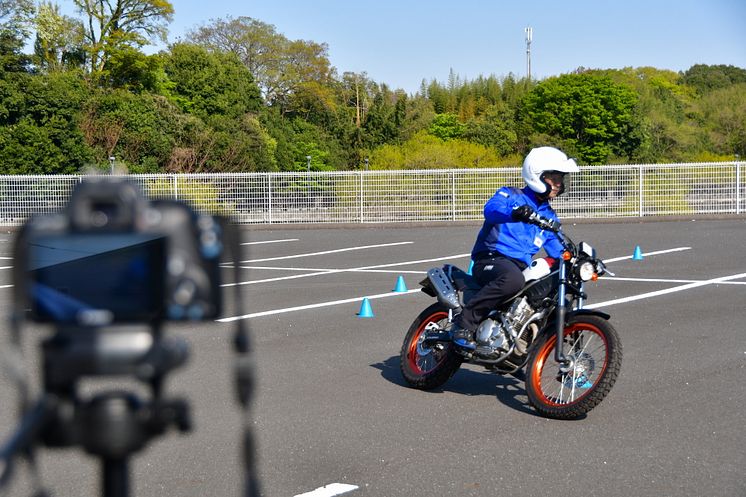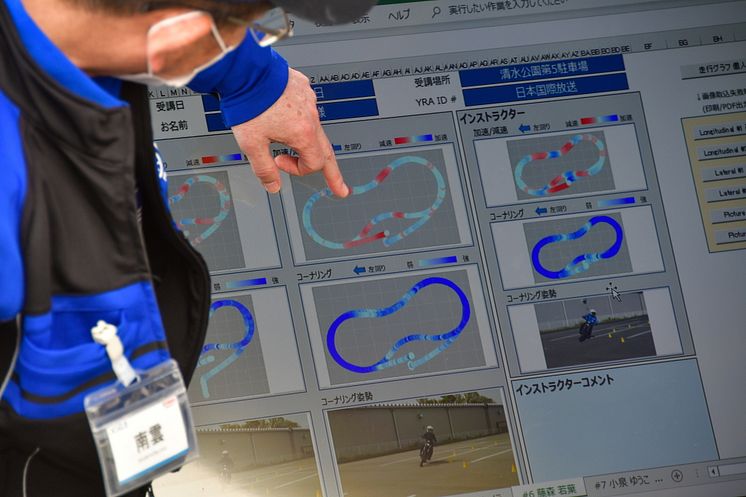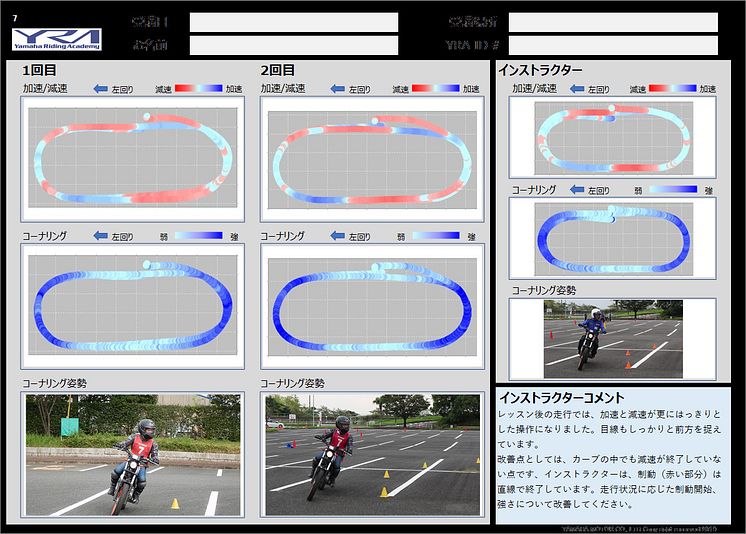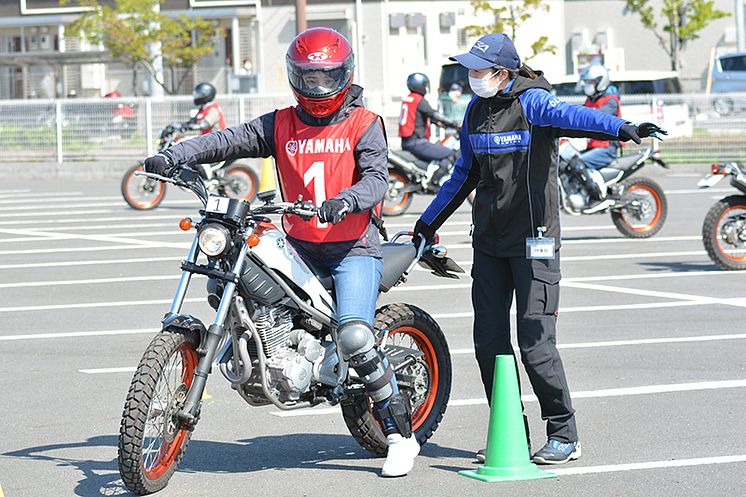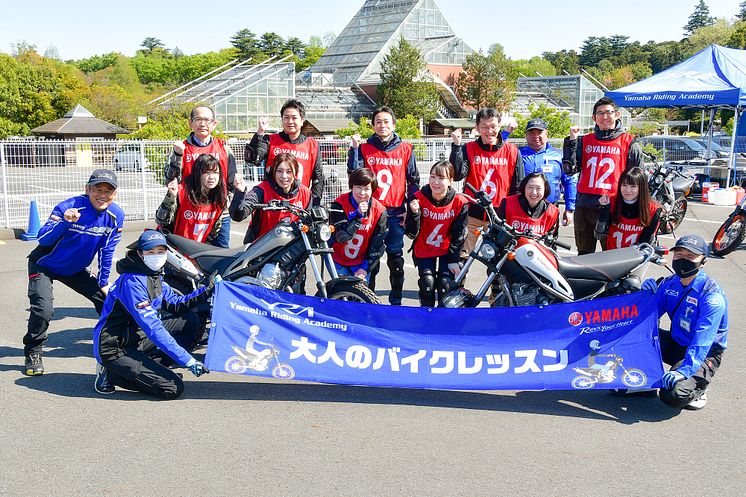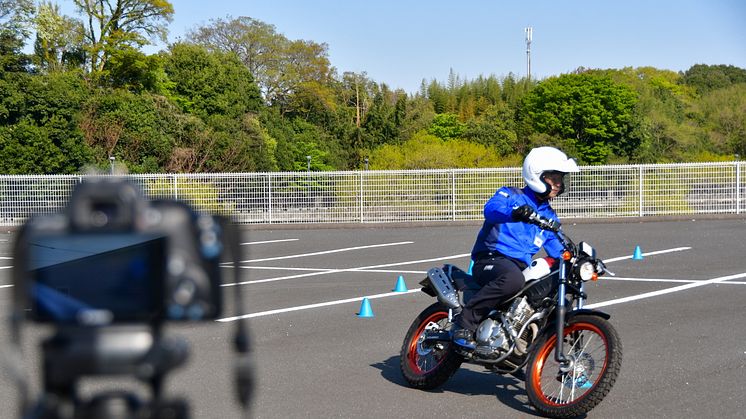
News -
Helping to improve riding ability through riding skill visualization Yamaha Motor Newsletter (May. 12, 2021 No. 87)
Yamaha Motor has developed the "YRFS (Yamaha Riding Feedback System)" that visualizes skills and provides feedback for the purpose of helping riders improve their riding ability, with the operation beginning at the safe riding awareness initiative, the YRA (Yamaha Riding Academy).
Starting with Japan, we plan to gradually introduce the program to riding instruction sites in countries such as Thailand and China.
Visualizing the state of "acceleration / deceleration" and "turning”

Acceleration / deceleration and turning status are displayed in different colors to highlight points for improvement.
Yamaha Motor is conducting a range of activities around the world, including safe riding training, so that all of our products can be used more correctly and safely. The safe riding awareness initiative, "YRA (Yamaha Riding Academy)" has been placed as a core program. More than 100,000 customers take YRA lessons annually, with tuition covering motorcycles and commuter vehicles, ATVs, snowmobiles, and personal watercrafts.

The "YRFS (Yamaha Riding Feedback System)" introduced in Japan's YRA from this year is a new teaching tool that helps riders improve their riding skills. It acquires vehicle position and speed data with a simple device and visualizes the "acceleration / deceleration" and "turning" states while in session. Within two weeks, the students will receive a feedback sheet that combines photos of their riding posture when turning and other riding data to help them understand their progress and what to improve, as well as the instructors' evaluation and advice so they can easily review own skills and improvement points.
Rated highly by students as a skill improvement support tool

Popular with beginners as it "encourages improvement"
Here are some of the responses from students who participated in a YRA program and received their "YRFS" feedback sheet.
"I was able to see for myself the acceleration and deceleration operations that I had not been aware of before and realized that I was not faithfully performing basic riding skills. By comparing the data from before the lesson and then after receiving the tuition, I could clearly understand how accurate the instructor’s advice was."
"The habits that I had picked up in my daily riding were clearly shown. It gave me an opportunity to remove bad habits from my riding." This is feedback from expert riders. On the other hand, even a beginner who had just got their license said, "I was riding without being aware of where to slow down and where to accelerate. If you can see that the areas identified by the instructor have improved, it provides encouragement to improve further.” which is high praise of this new tool that assists riders to hone their skills. In the process of exploring our unique development concept, Jin-Ki Kanno (The Seductive Exhilaration of Being One With the Machine), we have spent a long time researching human maneuvering and vehicle motion characteristics. "YRFS" uses some of the knowledge and techniques gained from such research to help improve riding skills. In the future, we plan to introduce these techniques to training sites around the world, including Thailand and China.

Lessons to relearn riding techniques are popular in Japan
|
Message from the Editor
As mentioned in the comments from the YRA participants introduced in the article, one of the motivations for improving riding skills is "to feel your own growth." By listening to the guidance from the instructor, identifying your own problems, and seeing the results of training to improve them, you will be more motivated to improve your skills. It seems to be one of the great benefits created by "YRFS". Maiko Kawai |
